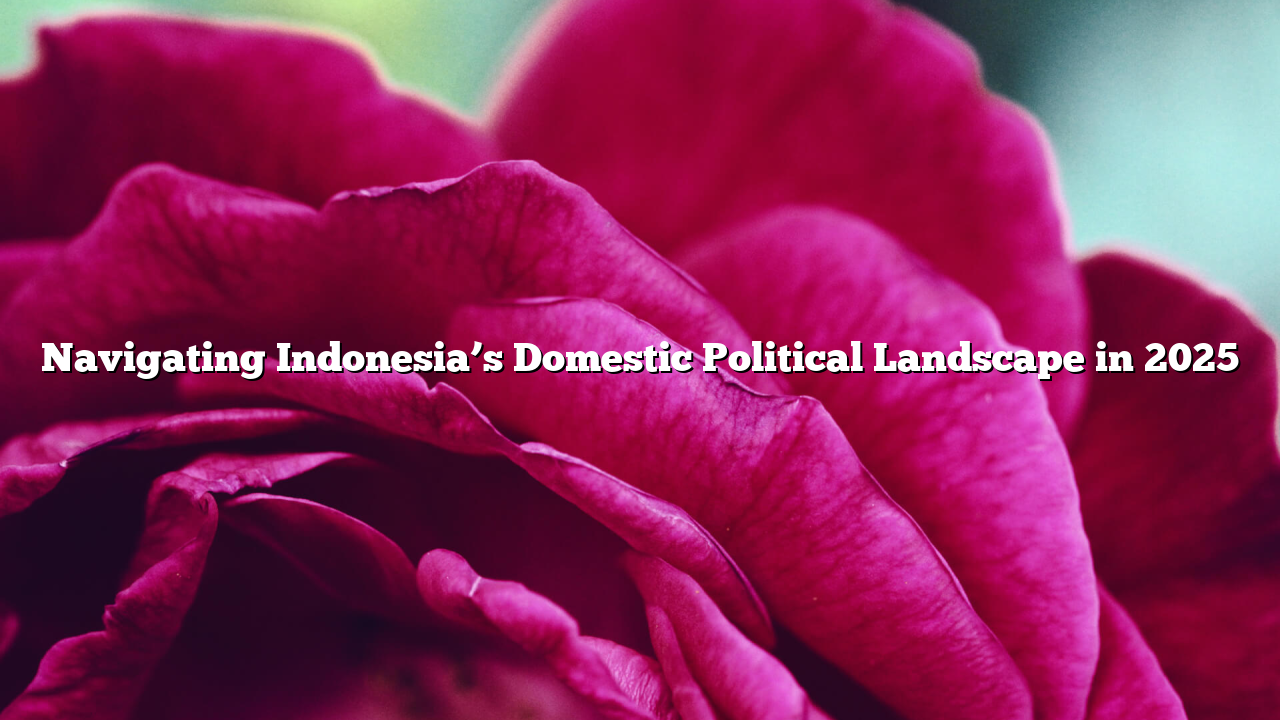Indonesia, the world’s third-largest democracy, finds itself at a pivotal juncture in 2025. The nation’s political climate is marked by both opportunity and uncertainty as newly elected leaders navigate the challenges of Pattimura4d economic recovery, social cohesion, and geopolitical positioning. Domestic politics today reflects the growing influence of grassroots movements, evolving party dynamics, and public demand for transparency.
The Post-Election Transition
Following the general elections earlier this year, Indonesia has entered a period of political transition. The newly formed administration faces the delicate task of balancing campaign promises with the realities of governance. Political coalitions—an enduring feature of Indonesian politics—have been reshaped, with both ruling and opposition blocs attempting to solidify their influence in the legislature.
This transition phase is critical, as public expectations remain high. Citizens are closely watching how the government addresses key issues, particularly economic inequality, infrastructure development, and corruption eradication.
Economic Priorities and Public Expectations
Indonesia’s economy, though resilient, continues to face structural challenges. Slowing global demand has impacted exports, while domestic inflation has affected household purchasing power. The administration’s domestic policy agenda prioritizes job creation, the development of renewable energy projects, and support for micro, small, and medium enterprises (MSMEs).
However, political analysts warn that economic reform is a double-edged sword. While bold initiatives could stimulate growth, they also risk alienating certain interest groups. Public protests against fuel price adjustments last year serve as a reminder that economic policy is inseparable from political stability.
Decentralization and Local Politics
One of Indonesia’s defining political features is its decentralized governance structure, granting significant autonomy to provinces and districts. This system has enabled regional leaders to tailor policies to local needs, but it has also produced challenges in maintaining consistent national standards.
In some provinces, political competition has intensified ahead of the upcoming regional elections. Governors and mayors are leveraging their track records—often tied to local infrastructure projects or social programs—to secure re-election. This localized competition is shaping the national political conversation, as regional leaders increasingly emerge as potential future presidential candidates.
Corruption and Governance Reform
Corruption remains one of the most pressing issues in domestic politics. The Corruption Eradication Commission (KPK) continues to investigate high-profile cases, but its authority has been subject to political debate in recent years. Civil society groups argue that strengthening the KPK and judicial independence is essential to restoring public trust.
The government has pledged to enhance transparency in public procurement and improve digital governance systems. Yet, critics caution that without rigorous enforcement, reforms risk becoming symbolic rather than substantive.
Youth Activism and Digital Politics
Indonesia’s youth population—over 50% of its citizens are under 30—has become a powerful political force. Young voters are increasingly vocal about environmental sustainability, education reform, and freedom of expression. Social media platforms play a significant role in shaping political discourse, allowing grassroots campaigns to challenge traditional party structures.
The 2025 elections saw a surge in digital political engagement, with online debates and fact-checking initiatives helping voters make informed decisions. However, the spread of misinformation remains a persistent threat, prompting calls for stricter regulation of political content online.
Balancing National Unity and Diversity
Indonesia’s political stability depends heavily on its ability to maintain unity among its diverse ethnic, religious, and cultural communities. Domestic politics often require delicate negotiation between local identities and the national interest. Issues such as minority rights, religious tolerance, and equitable development continue to test the government’s commitment to inclusivity.
Looking Ahead
As Indonesia moves further into 2025, the interplay between government policy, civil society activism, and party politics will shape the nation’s trajectory. The administration’s ability to deliver tangible results—while preserving democratic freedoms—will determine whether this period becomes a stepping stone toward greater stability or a flashpoint for political contention.
The path forward is complex, but Indonesia’s democratic resilience, rooted in public participation and institutional adaptability, offers reason for cautious optimism.
